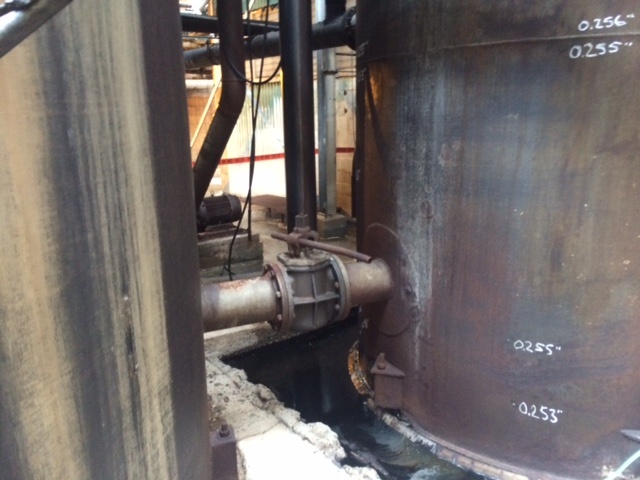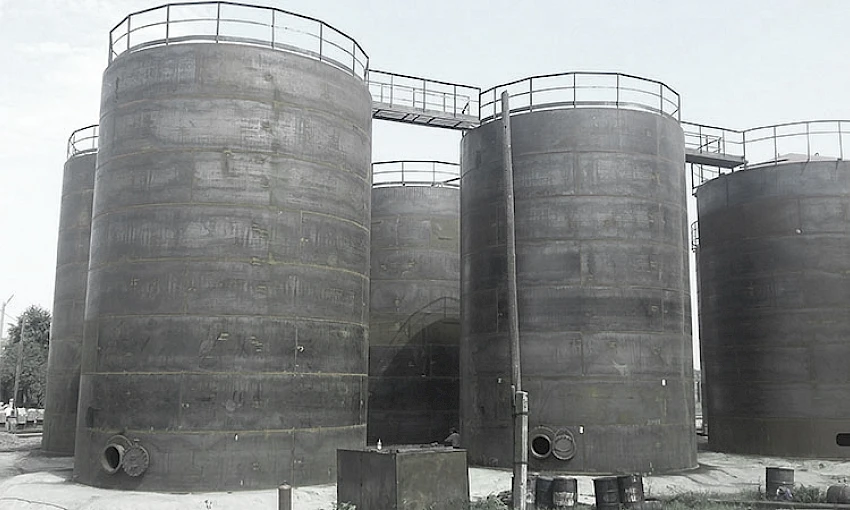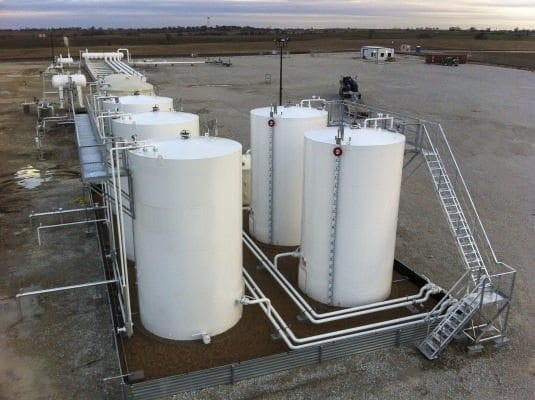How API 650 Welding Inspection Enhances Longevity of Welded Structures
The Benefits of Welding Inspection for Boosted Safety and Efficiency
Welding assessments are important for making certain that structures fulfill strict sector criteria. They play an important duty in recognizing problems early, thereby boosting safety and reducing the risk of devastating failings. Furthermore, these inspections can bring about substantial expense savings by avoiding pricey repair work and downtime. As organizations go for better performance and dependability, the importance of a robust assessment procedure can not be overstated. What various other benefits might emerge from a commitment to extensive welding evaluations?
Making Certain Conformity With Market Specifications
Ensuring conformity with market requirements is vital for preserving high quality and safety in welding tasks. Abiding by recognized protocols not just safeguards workers however also enhances the toughness and performance of the final product. Welding assessments carried out at various phases of the procedure assistance identify any deviations from these requirements, enabling prompt corrective activities. This positive approach mitigates the threat of failures that might result from low-grade workmanship.
Compliance with sector criteria cultivates depend on among stakeholders, consisting of customers, governing bodies, and the labor force. It represents a dedication to excellence and responsible methods, which can lead to raised service possibilities and an one-upmanship on the market - API 650 Welding Inspection. Normal assessments also ensure that materials and methods made use of align with the most up to date technological improvements and safety laws. Inevitably, adherence to market standards is not simply a regulatory demand but a cornerstone of top quality guarantee in welding jobs
Enhancing Safety And Security Via Very Early Detection of Issues
While the key goal of welding examinations commonly fixates conformity, they play an essential role in enhancing safety and security by enabling the very early detection of issues. Recognizing problems such as insufficient combination, splits, or porosity during inspections can significantly mitigate the threat of catastrophic failings. Early discovery enables prompt interventions, making certain that damaged welds do not compromise architectural integrity.
Additionally, systematic inspections promote a culture of security within companies by highlighting the significance of top quality control. This aggressive strategy not only secures employees but additionally safeguards the surrounding setting. Routine assessments can disclose trends in flaw event, enabling modifications in welding techniques and training programs to attend to underlying problems.
As a result, welding evaluations function as a vital secure, reinforcing overall safety and performance by identifying problems prior to they rise into severe hazards. This dedication to top quality directly contributes to the long life and dependability of bonded structures.
Lowering Costs by Protecting Against Failures
By applying extensive welding inspections, organizations can effectively minimize costs connected with failings and revamp. The positive recognition of problems during the welding process lessens the danger of devastating failings that can result in pricey fixings or substitutes. Early discovery permits prompt treatments, which prevents the rise of small issues right into significant troubles that strain spending plans and sources. In addition, by making certain that welds meet specified requirements, organizations can avoid hold-ups in job timelines brought on by the need for substantial rework or additional inspections later in the procedure. This not just saves cash but likewise improves functional performance. Moreover, a track record for top quality workmanship can bring about raised client satisfaction and repeat organization, more adding his comment is here to financial stability. Generally, purchasing welding assessments is a critical strategy that cultivates expense savings while protecting the integrity of bonded structures.
Improving Efficiency and Longevity of Structures


Welding inspections play an essential role in enhancing the efficiency and longevity of frameworks, as they verify that welds are executed to the greatest criteria. By identifying flaws early in the welding procedure, examinations avoid weak points that could compromise structural stability. This positive method warranties that the products utilized fulfill called for requirements, thus maximizing their load-bearing ability and durability.
Constant surveillance of welding practices adds to the total quality of building projects. When welds are verified for conformity with industry criteria, the potential for fatigue and failing in time is greatly minimized. Frameworks that are built with properly evaluated welds are most likely to experience fewer upkeep problems and enhanced resilience.
Ultimately, strenuous welding evaluations not just bolster the instant performance of a structure but additionally prolong its functional life expectancy, providing long-lasting worth to both end-users and contractors alike.
Cultivating a Culture of High Quality and Reliability
A commitment to top quality and reliability in welding techniques significantly adds to the overall success of building and construction tasks. When organizations prioritize these worths, they foster a culture that urges meticulous interest to information and adherence to industry standards. This society not just enhances the skill degree of welders yet also advertises liability and team effort among all YOURURL.com stakeholders associated with the task.

Normal welding examinations work as a cornerstone in this social change, enhancing the importance of consistent efficiency and precaution (API 650 Welding Inspection). By implementing rigorous inspection protocols, companies can recognize possible flaws early, mitigating risks and staying clear of pricey rework. In addition, a concentrate on high quality and dependability imparts confidence among partners and clients, causing stronger connections and enhanced reputations
Ultimately, cultivating a society of quality and integrity in welding methods not just raises project end results however additionally ensures lasting sustainability and Look At This success in the building and construction industry.
Regularly Asked Questions
What Credentials Should a Welding Examiner Have?
A welding examiner need to possess pertinent certifications, such as AWS CWI or CSWIP. Furthermore, they need to have experience in metallurgy, welding processes, and assessment strategies, along with strong logical skills and attention to information for effective examinations.

How Typically Should Welding Inspections Be Performed?
Welding inspections ought to be carried out frequently, ideally after each considerable stage of the welding process. Additionally, periodic inspections should take place based upon project requirements, service conditions, and regulative requirements to guarantee continuous quality and safety and security.
What Devices Are Utilized Throughout Welding Inspections?
Welding evaluations make use of various tools, consisting of ultrasonic testers, magnetic bit testers, visual evaluation devices, and radiographic devices. Each device serves a details function, making sure weld top quality and architectural stability with extensive evaluation and evaluation.
Can Welding Inspections Be Done From Another Location?
Welding examinations can certainly be executed remotely utilizing sophisticated technologies such as drones and specialized cameras. These devices allow inspectors to analyze welding high quality and integrity from a range, improving performance and security in numerous atmospheres.
What Are the Usual Sorts Of Welding Defects?
Usual sorts of welding flaws include porosity, splits, incomplete combination, undercutting, and slag addition. These defects can jeopardize the honesty and stamina of welds, bring about prospective failings in structural applications otherwise addressed appropriately.
Welding inspections are necessary for guaranteeing that frameworks fulfill strict sector standards. Welding evaluations performed at various stages of the procedure help determine any kind of deviations from these requirements, making it possible for timely restorative activities. Welding examinations play a necessary duty in enhancing the performance and long life of frameworks, as they confirm that welds are carried out to the highest possible standards. Welding assessments need to be conducted on a regular basis, preferably after each significant phase of the welding procedure. API 650 Welding Inspection. Welding examinations utilize various devices, consisting of ultrasonic testers, magnetic fragment testers, visual assessment devices, and radiographic tools